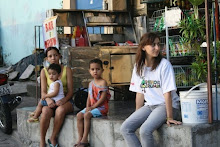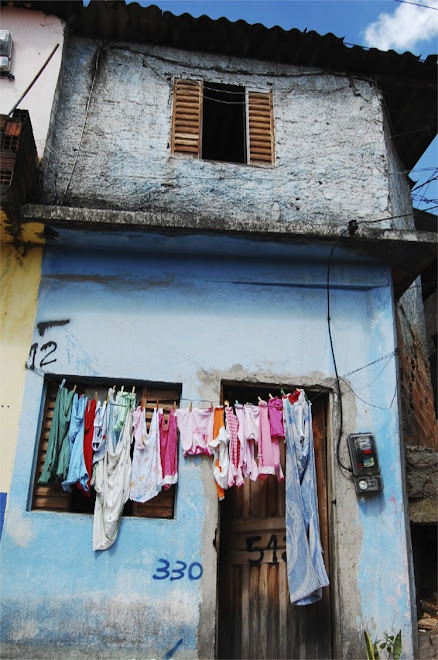Wednesday, September 8, 2010
Adios Santo Domingo
I am finding it difficult to express everything in my blog. I have so much to say because everything is all new to me. I could go on forever just about this week alone. Tomorrow I am leaving for more technical training to the north part of the country with other volunteers that will focus on Economic Development like myself. We will be there for 5 weeks. Once I return, I will finally get my site assignment for the next two years, the moment we have all been waiting for.
Yesterday I was asked in my placement interview, out of 1 to 10, how committed do I feel to Peace Corps. After finally seeing real PCV life, I feel highly committed. I feel very motivated. I am eager to find out where I will be serving.
I think after this post, I am going to concentrate on specific events that happen and things that strike me instead of just regurgitating everything I do. There are many topics I want to talk about so you can get a better understanding of how I have been acclimating not only to a new culture, but as a PCV.
My “firsts” this past week:
-Rode on a motoconcho
-Beach trip to Sasoa in the north (Did I mention I live in paradise)
-Travelled into the mountains (very rural, could only get there using a motoconcho)
-saw a tarantula
-Danced meringue and bachata
-Gave my first charla (presentation) to a group of local Dominican artisans on conflict resolution
-ate street food, a bola of yucca (ball of yucca), really good
-Baked my first pumpkin pie from scratch for my host family
- ate Dominican sushi (they put a spin on it with platanos, really good)
-Shoved 11 people into a 5 seater car (funny thing was, it was the volunteers who suggested we take one car. Dominicans are rubbing off on us)
What I am looking forward to within the Peace Corps Family:
-Bola (Hitchhiking) Race- just imagine Amazing Race, PC style, yes I am serious
-Thanksgiving with my fellow volunteers
-Writing for the Peace Corps newsletter
-Helping plan a regional conference
-Running my first half marathon
-(Possibly) getting SCUBA certified
-Learning to play the guitar (they are pretty cheap here)
- Having all my friends and family come visit
-Volunteer Potlucks
Piropos en la calle
Growing up in southern California, I am somewhat “desensitized” to the cat calls in the streets. In the DR I run into persistent cat callers on the streets who shout out piropos. If you were to look up piropo in the English Spanish dictionary, its literal conjugation is ‘compliment’. However, the typical foreign woman would call it harassment. Most Dominican woman would agree-or so they say. Being so accustomed to these piropos-which usually include hissing, singing songs, shouting certain phrases or nicknames- if a Dominican woman did not hear any piropos on her walk in the streets, she would go home and immediately check a mirror to make sure she was looking okay. It would almost be abnormal l and cause a woman to think that something was wrong with her appearance if she didn’t receive piropos.
Everyday I run the same route in the morning with my friend Alyson. We pass the same people and every day we get the same piropos. I usually laugh them off or answer with a smile “Buenos dias.” Sometimes, if I answer them, they get very surprised and even embarrassed. They can’t possibly think that they can pick up a woman by screaming “rubia preciosa” “te quiero” “I love you baby,” etc. To joke with the men I pass daily is actually a good way to get them to stop and actually gain some respect for you (even Peace Corps say so). However, random people throughout the day, are simply ignored.
It’s funny how accustomed I have become to this by living in a more latino community for my whole life. (NOT saying that all latinos partake in this behavior) I actually don’t understand how someone can actually take them seriously and allow their machismo piggish behavior bother them. I am lucky enough to have arrived just as a popular song called “Pa Manga Mi Visa” came out and is the #1 song in the nation. Basically, the lyrics say “I want an American so I can get my Visa, I want an American to teach me English, I want an American to take me away from here, I will marry you to go to New York.” Needless to say, males from as young as 5 years old sing the lyrics to me in the street. The lyrics are great and I always have something to respond with. “No soy el consol” (I am not the consulate) usually gives them a laugh.
Wednesday, September 1, 2010
Don’t Worry Mom, I didn’t buy a motoconcho

Yesterday we received our awesome motorcycle helmets and learned how to ride on the back of a motoconcho. Although training lasted about 2 minutes, it doesn’t take a genius to figure it out. My training days this week have been very long, full of lots of information, more vaccinations, but a little draining. I am learning more about Dominican culture, geography, history and more medical “know how” as I like to call it(I am a professional re-hydration maker now). Current volunteers have come to visit to explain to us what they have been doing, how they are living, etc. It is interesting to hear all their different stories. This week volunteers visited that all lived in different possible living situations- la ciudad (the city), el pueblo (the villages closer to the outskirts of cities, el cambo (more rural and smaller villages) and bateys (Haitian-Dominican communities that grew out of temporary housing situations from the sugar cane factories). This was supposed to give us a better idea of where we would like to serve for our two years. Although some of you might be thinking that the city has the most amenities and is the best, you are wrong. They all have their pros and cons but I found it very interesting how twisted some of the living conditions are. If I didn’t mention this already, electricity and water here is on and off all the time. The most common frase is “se fue la luz,” the lights are out. And let me tell you, they are out more often than not in most places. Even though one volunteer lived in the second capital in the country, he had no running water and only a few hours of electricity depending on the day. Yet, the volunteer who lived in a rural campo had electricity 24/7. A close by river uses a hydro electricity system that brings his area electricity. Electricity and water. Two basic amenities, some might even call these essentials. Why is there no better system to maintain both? Not a lot of people know. There aren’t enough plants to supply the electricity, people using a lot of what there is only very little of, and there is not a set system of people paying for these amenities.
Back to the site locations. All the volunteers had a unique experience depending on where they were located. I like the idea of being in a small enough place that people know who I am, but not too small to where I feel isolated from the rest of the PCVs (Peace Corps Volunteers). Speaking of acronyms, Peace Corps has an acronym for just about everything. I am a PCT who will be going to CBT at the end of next week for CED training where I will meet with my APCD about our work. In English please…. I am a Peace Corps Trainee who will go to Community Based Training at the end of next week for Community Economic Development training where I will meet with my Associate Peace Corps Director about our work. That’s just a handful of them. And then the nurse comes and talks to us about STIs, HIV, MMR and I am lost.
Good news, I am leaving this Thursday for my weekend volunteer visit to a place called Higuerito in Moca (about 2 ½ hours north of Santo Domingo). I am traveling alone for the first time so fingers crossed that I won’t get lost. I am ready to get out of the city for a little bit-I think the fumes are starting to rattle my brain. It feels like I have been here in the DR for a while now although it has only been 2 weeks or so. The mosquitoes are biting me less, so I am probably starting to smell like a Dominican ( I am eating a lot of platanos). Learning more about how Dominicans live is also making me feel more integrated into their culture. Since I am in advanced Spanish class, we spend a lot of time talking about just typical Dominican life. I have learned some very interesting things about Dominicans this way.
Did you know:
-25% of the Dominican population is undernourished, 42% live below the poverty line-this has increased from 25% just since 2000.
- There are many interesting Dominican superstitions. Just to name a few: A woman should never put her purse on the floor or else she will lose money. If a pregnant woman rolls over her husband in bed, her husband will feel the pains of pregnancy.
-Many people use animal nicknames to describe personality traits. For example, if you are a player, you are a ‘tigre’. If you are an ugly woman you are called a ‘grillo’ (fire fly). ‘Jamona’ is a woman who is old and not married. ‘Caballo’ (horse) is someone who has great physical ability.
Just some things about the DR that have struck me in one way or another. If I don’t get lost in the country this weekend, I will update you when I return.



.jpg)



